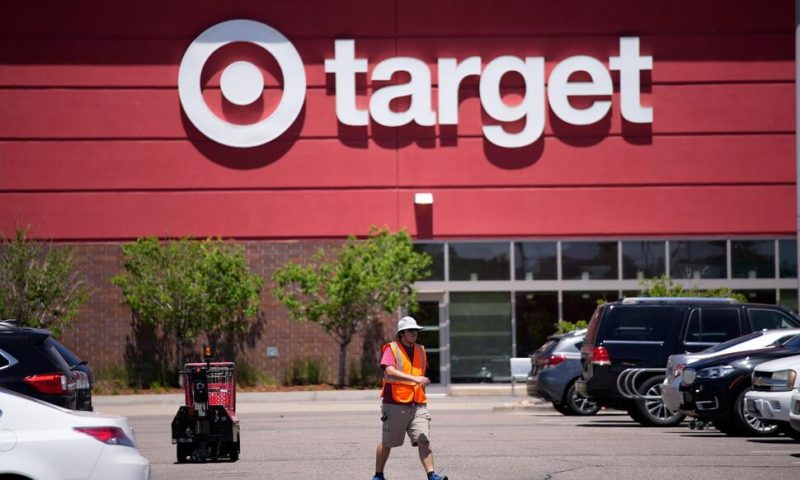Target delivered another quarter of strong results, overcoming a slew of challenges from inflationary pressures to congested ports.
NEW YORK — Target delivered another strong quarter, overcoming a slew of challenges, from inflationary pressures to congested ports.
The Minneapolis-based company reported Wednesday that its third-quarter profits rose nearly 47%, while sales increased 13.2%, both exceeding expectations. It also raised projections for fourth-quarter comparable store sales.
Target joins a number of retailers, including Walmart, heading into the holiday shopping season with momentum. Some of the biggest U.S. retailers are rerouting goods to less congested ports, even chartering their own vessels.
Target also said it unloaded about 60% of its containers at off-peak times. Target and Walmart are using their scale to keep prices comparatively low and perhaps most importantly, keeping shelves full when so much is in short supply.
Target said that inventory levels rose nearly 20% compared with the same period last year.
T.J. Maxx’s parent, which posted strong fiscal third-quarter results, said that most of the inventory it needs for the holiday season has already been delivered or is scheduled to arrive in stores or online in time for the holidays.
Yet Target, like many retailers, has not been unscathed by soaring costs.
Its quarterly operating income margin rate during the quarter was 7.8%, down from 8.5% last year. Its gross margin rate was 28%, also down from last year’s 30.6%. The company cited higher merchandise and freight costs, on top of rising supply chain costs.
Some of those cost increases will be permanent, company executives said Wednesday. While supply chain bottlenecks should ease over time, Target is seeing rising prices from suppliers who are also wrestling with higher costs. Labor also remains tight and part of Target’s own cost increases came from staffing up to handle online orders.
Target’s shares fell nearly 5%, or $12.58, to close Wednesday at $253.00.
Sales at stores that have been open for at least a year rose 9.7% in the three-month period that ended Oct. 30. That was on top of a 9.9% growth in the same 2020 span. Target reported double-digit sales growth across all five of its key merchandise categories including food and clothing.
Online comparable sales jumped 29% compared with a blistering 155% increase a year ago before vaccines against COVID-19 became available and many Americans steered clear of indoor spaces.
Net income rose to $1.49 billion, or $3.04 per share, from $1.01 billion, or $2.01 per share, last year. Adjusted earnings per share for the recent quarter was $3.03, far exceeding the $2.82 per share Wall Street had been expecting, according to a survey by FactSet.
Sales reached $25.29 billion in the quarter, topping last year’s $22.34 billion and also the projections of industry analysts.
Target CEO Brian Cornell told reporters that Americans have been shopping throughout the year, particularly during key periods like back-to-school and Halloween.
The company now expects that same-store sales for the fourth quarter will be up in the high single digit to low double-digit percentage range, up from the previous guidance for a high-single digit increase.
Also reporting quarterly earnings Wednesday was Lowe’s, which continued a string of topping Wall Street expectations in a red-hot housing market, as did Home Depot on Tuesday. In an interview with The Associated Press, Lowe’s CEO Marvin Ellison said the company secured the goods customers want and is in a “great position.”

